President Ho Chi Minh is a historical case of "becoming a legend while still alive" and the further time goes by, the more his vitality and value in thought shine.
The interpretation of the immortal vitality of Ho Chi Minh's thought not only helps us understand better and have more confidence in the Party's ideological foundation, but the great values in his thought itself are an effective denial of the distorted opinions of political opportunists about Ho Chi Minh. On the other hand, affirming the eternal values in Ho Chi Minh's thought is also a way to help cadres and party members prevent and combat the degradation of political ideology and manifestations of laziness and disregard for studying Ho Chi Minh's ideology, morality and style.
The stormy 20th century has ended with the contributions of many great men, including Ho Chi Minh. What makes Ho Chi Minh's thought strong and vital are the typical characteristics emanating from his thought.
 |
| President Ho Chi Minh talks with students of the Central School of Dramatic Arts in Mai Dich Cultural Area, Hanoi. Photo: Archive |
1. The core content of Ho Chi Minh's thought is national independence associated with socialism, in accordance with the development laws of the times.
The desire for freedom is a human characteristic, so when colonialism pushed countless nations into slavery, the struggle for national independence became an inevitable trend of the times. Leaving to find a way to save the country, Ho Chi Minh became a representative of oppressed nations fighting for the right to be human, the right to live in equality and freedom.
Equipped with the scientific methodology of Marxism-Leninism and practical experience, Ho Chi Minh made discoveries of the era on the path to national salvation and the direction of nation building of the Vietnamese people: "To save the country and liberate the nation, there is no other way than the path of proletarian revolution" and "only socialism and communism can liberate oppressed peoples and working people around the world from slavery".
Ho Chi Minh had a very creative system of views on the method of liberation, that is, the colonial revolution must be carried out proactively and creatively, not passively waiting for the revolution in the mother country and will succeed before the revolution in the mother country. Implementing his ideology, the Vietnamese people not only gained independence and freedom, but the victory of the Vietnamese people also contributed to the collapse of the colonial system on a global scale. Therefore, Ho Chi Minh was known as the person who pushed the wheel of history in a progressive direction. The British scholar Bertrand Rousseau wrote: "President Ho Chi Minh's selfless and selfless career for the independence and unification of Vietnam for more than half a century has made him not only the leader of the Vietnamese people but also the famous architect of the world that has escaped colonialism".
2. Ho Chi Minh's thought crystallizes the eternal values of humanity: peace, national independence and social progress.
The world honors Ho Chi Minh as a Cultural Peacemaker because he always strives to resolve conflicts with other nations through cultural dialogue. When forced to defend himself, he proactively limits the space for war in Vietnam to protect regional and world peace. Ho Chi Minh loves peace very much, but it must be true peace - peace in independence and freedom because as he declared: "All peoples in the world are born equal; every nation has the right to live, the right to happiness and the right to freedom."
For Ho Chi Minh, independence and freedom are not only political goals but also moral values. A patriotic person, a nation with pride will not be willing to live a life of slavery. When the world is still full of injustice, Ho Chi Minh's thought "Nothing is more precious than independence and freedom" has become the great truth of the times.
3. Ho Chi Minh's ideology expresses the desire for solidarity and friendly cooperation among nations.
Nguyen Ai Quoc-Ho Chi Minh was the first Vietnamese to affirm: “The Annamese revolution is also a part of the world revolution. Anyone who makes revolution in the world is a comrade of the Annamese people”. This can be considered the beginning of his strategy of international solidarity. It must be emphasized that this strategy was born not only for political purposes but also from the sentiment of fellow human beings: “Thousands of miles of mountains and rivers are one family/ Because in the four seas, everyone is a brother”. This sentiment in the communist Nguyen Ai Quoc was so profound that in 1923, the Soviet poet Osip Mandenstam felt: “Through the noble demeanor and warm voice of Nguyen Ai Quoc, we seem to hear tomorrow, to see the immense silence of world friendship”.
When the Democratic Republic of Vietnam was born, President Ho Chi Minh declared: Vietnam is ready to "be friends with all democratic countries and not create enmity with anyone". He constantly educated the people about friendship, about the morality of "helping friends is helping yourself". The "Cold War" pushed countries into a "confrontation" situation, but Ho Chi Minh still persistently affirmed: "Countries with different social regimes and different forms of consciousness can all live together peacefully". Ho Chi Minh was a person who always sought to unite instead of exclude, always tried to find "common denominators" instead of "deepening" differences. With the spirit of "seeking unity in diversity", Ho Chi Minh was not only a person with modern international thinking and a spirit of cultural tolerance, but also an ambassador of Vietnam around the world.
4. Ho Chi Minh's thought reflects the spirit of innovation and integration - the great trend of today's era.
Ho Chi Minh was a person who was particularly sensitive to the new. He also defined revolution from this perspective: "Revolution is to destroy the old and replace it with the new, to destroy the bad and replace it with the good." Loyal to Marxism, he still asked the question: "Marx built his doctrine on a certain philosophy of history, but which history? European history. And what is Europe? It is not all of humanity." From that perception, Ho Chi Minh not only applied but also creatively developed Marxism-Leninism with a series of new arguments, suitable for the Vietnamese revolution. Leading the construction of socialism, he advised cadres to absolutely not be dogmatic or conservative. In his "Will", although he did not directly use the concept of "innovation", he outlined a strategy of innovation in general and advised: "This is a fight against what is old and corrupt, to create new and fresh things." The cause of renovation initiated by the 6th Party Congress has returned to that spirit and the achievements brought about by renovation are truly great. That is a testament to Ho Chi Minh's strategic forecasting ability. When the world is developing at an unprecedented speed like today, Ho Chi Minh's innovation thinking becomes even more meaningful.
Ho Chi Minh was also the one who laid the foundation for Vietnam's open-door policy and international integration. As soon as the revolutionary state was born and had not been recognized by any country, the open-door policy and calling for investment were affirmed by him in the "Appeal to the United Nations" (December 1946). In international trade, Ho Chi Minh declared: "Vietnam will trade with all countries in the world that want to trade with Vietnam honestly". Today, comprehensive international integration has become an inevitable trend, but in the 1940s, Ho Chi Minh's policy of economic cooperation with countries with different ideologies and political systems was truly a very new and progressive way of thinking.
5. Ho Chi Minh's cultural and ethical thoughts not only promote mutual understanding among nations but also leave a model of human culture.
For Ho Chi Minh, culture is not something too sublime but must become "culture of life", that is, culture must contribute to eliminating backwardness, ignorance, vanity, luxury in customs and improve people's knowledge so that each person can fully liberate his or her "human capacity".
Ho Chi Minh was very profound in his belief that the absorption of human culture must go hand in hand with the promotion of national culture because, in addition to the issue of benefits, it is also a dedication in the spirit of "having enjoyed the good things of others, we must also give them the good things to enjoy". Containing extremely profound viewpoints, therefore, UNESCO assessed: Ho Chi Minh's thought "is the embodiment of the aspirations of nations wishing to affirm their cultural identity and to enhance mutual understanding among nations".
Ho Chi Minh was also a thinker who paid special attention to ethics. Speaking about the importance of ethics, Ho Chi Minh always affirmed that ethics is the root of human beings, the strength of revolutionaries and the revolutionary Party, the condition for people to reach their talents, and the factor that creates the appeal of revolutionary doctrine. According to Ho Chi Minh, the highest ethics is to strive and sacrifice for the independence of the nation and the happiness of the people and humanity.
Ho Chi Minh's moral thought is convincing not only because of its scientific and humanistic characteristics but also because of his life "as pure as light" and his complete dedication to the people and the country. Not only the Vietnamese people, but also the great intellectuals of the era have acknowledged: "When talking about a person whose whole life has left a deep affection for the people, there is no one other than Ho Chi Minh". Ho Chi Minh's thought on morality and Ho Chi Minh's morality - a typical model of purity and nobility, are always intertwined and have great topical significance for a world full of paradoxes today.
The world is becoming richer and more modern, but due to the excessive development of individualism, the increasing gap between rich and poor, and inequality between classes and ethnic groups, many people have fallen into a crisis of life and belief. That has led to an increase in violence and deviant lifestyles of a part of the population. To the point that some people use the phrase "barbarism in civilization" to talk about the modern world. During his lifetime, Indian Prime Minister Nehru concluded very correctly that: "The world today is going through a crisis... What is needed now is to approach peace, friendship and love. Ho Chi Minh is a symbol of that approach". Ho Chi Minh's humanistic and ethical ideology with the philosophy of life "righteousness and closeness to the people" will awaken the "good" part in each person, helping them find the right way to live and ethical behavior to achieve true happiness.
Years have passed but Ho Chi Minh “is not a memory of the past. He is a wonderful man for all times”. That is the accurate assessment that humanity has given to our Uncle Ho.
Associate Professor, Dr. TRAN THI MINH TUYET, Faculty of Ho Chi Minh Thought, Academy of Journalism and Communication
Source: https://www.qdnd.vn/phong-chong-tu-dien-bien-tu-chuyen-hoa/nhan-thuc-sau-sac-tu-tuong-ho-chi-minh-cung-la-mot-cach-phong-ngua-su-suy-thoai-ve-tu-tuong-chinh-tri-761729
Source


![[Photo] Prime Minister Pham Minh Chinh receives Swedish Minister of International Development Cooperation and Foreign Trade](https://vphoto.vietnam.vn/thumb/1200x675/vietnam/resource/IMAGE/2025/5/12/ae50d0bb57584fd1bbe1cd77d9ad6d97)

![[Photo] Prime Minister Pham Minh Chinh starts construction of vital highway through Thai Binh and Nam Dinh](https://vphoto.vietnam.vn/thumb/1200x675/vietnam/resource/IMAGE/2025/5/12/52d98584ccea4c8dbf7c7f7484433af5)


![[Photo] Prime Minister Pham Minh Chinh works with the Standing Committee of Thai Binh Provincial Party Committee](https://vphoto.vietnam.vn/thumb/1200x675/vietnam/resource/IMAGE/2025/5/12/f514ab990c544e05a446f77bba59c7d1)
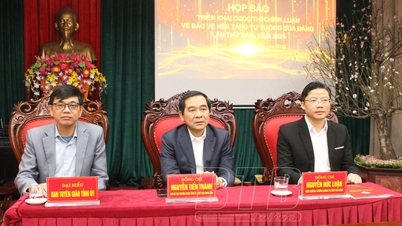
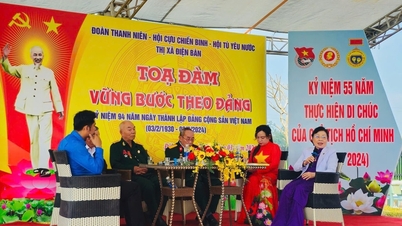
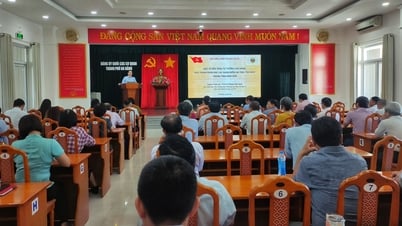



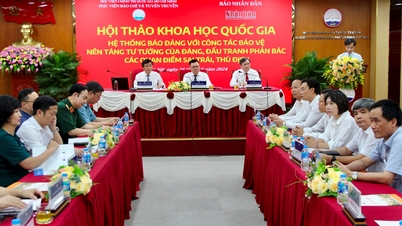
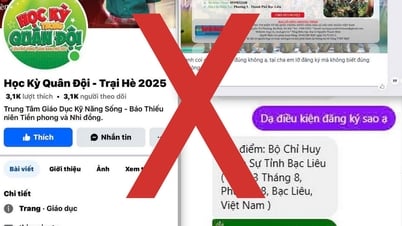
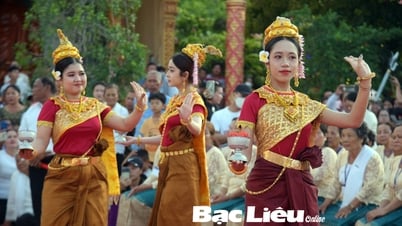
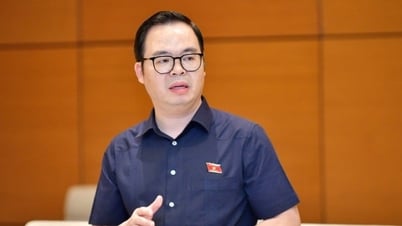

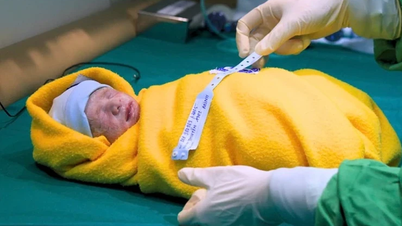
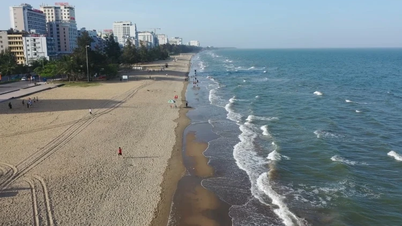




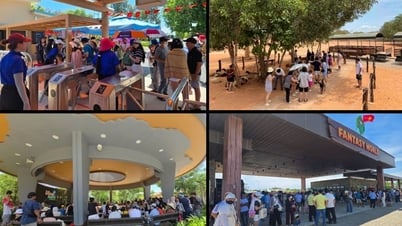
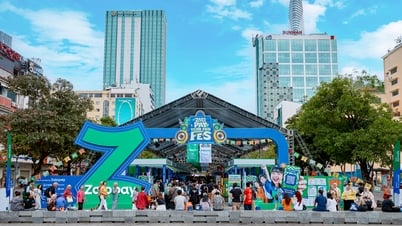
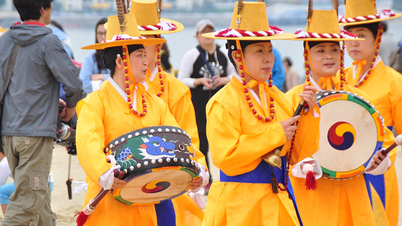
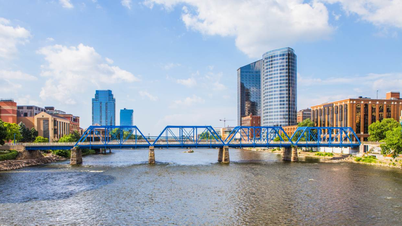





















































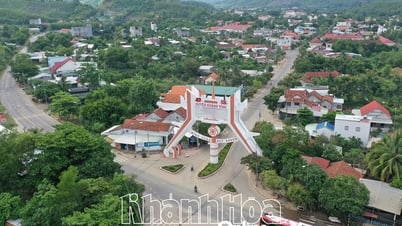



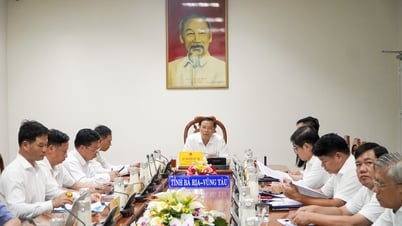











Comment (0)